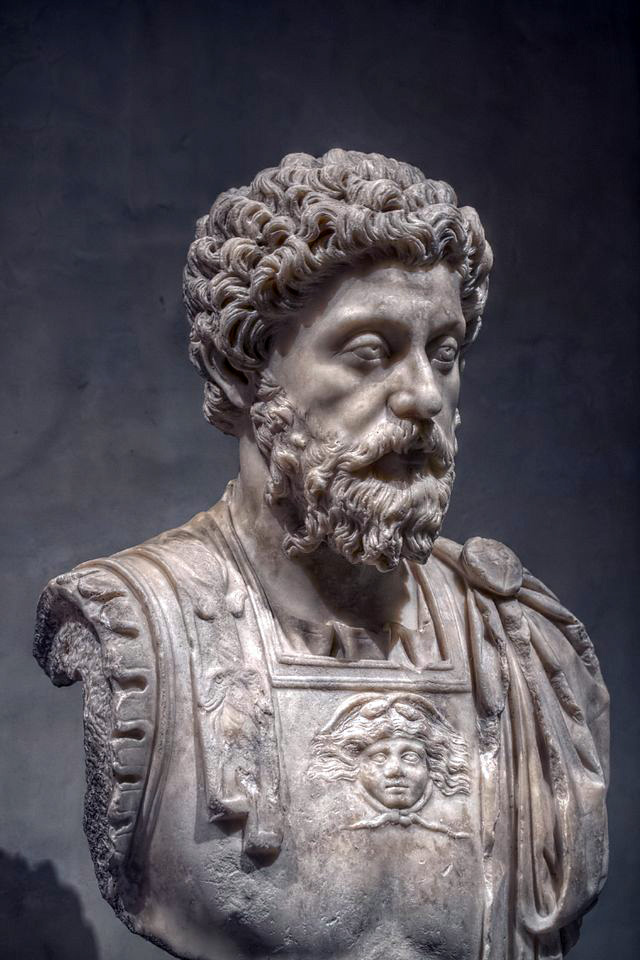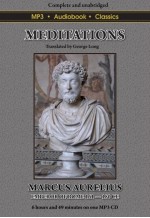Marcus Aurelius
 | Marcus Aurelius (April 26, 121 AD – March 17, 180 AD) was the last of the “Five Good Roman Emperors”, ruling from 161 until 180. He was born into a prominent Roman family with origins in the small town near Cordoba in the Iberian province of Baetica. His great-grandfather had been a senator; his grandfather had been made a patrician; and his father married into the wealthy family of Domita Lucilla. He was adopted by his grandfather after the death of his father in his third year and raised in the upscale district of Caelian Hill. His private teacher Diognetus introduced him to the philosophic way of life; another teacher, noted litterateur Alexander Cotiateum, the leading Homeric scholar of the day, was an important influence on his literary style. In 138 the Emperor Hadrian adopted Aurelius Antoninus as his successor following his near death from a hemorrhage. Hadrian further stipulated that Antoninus adopt young Marcus and in the same year persuaded the senate to exempt Marcus from becoming quaestor before his twenty-fourth birthday. Hadrian died soon thereafter, Antoninus succeeded him, and Marcus became the heir apparent, taking up residence in the imperial palace and serving as consul and in other honorable positions. He acceded to the office of emperor on the death of Antoninus and insisted that his brother Lucius be named co-emperor. The two were popular with the Roman people, and their reign was peaceful at first. Troubles began in 162 with floods in Rome and wars in the outlying provinces in the Middle East, Britain, and Germany. Lacking military experience, Marcus relied on generals to restore order by the late 160’s, only to be followed by a plague in 169. The final decade of his life, during which he wrote The Meditations, was largely spent in campaigns against German invaders. He died in Vienna of a second outbreak of the plague in 180. |
The Meditations of Marcus Aurelius
One hears the term Roman Emperor, and at once the very bad ones come to mind: Caligula, Nero, Domiti..
$9.99

